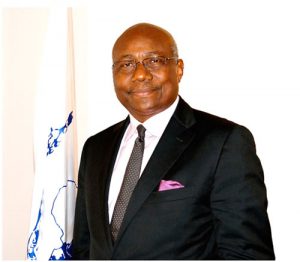The Executive Secretary of CERDOTOLA
 BIOGRAPHIE of Pr CHARLES BINAM BIKOI
BIOGRAPHIE of Pr CHARLES BINAM BIKOI
Professor Charles Binam Bikoi, Senior Research Officer, Professor in many Universities specialized in Ancient civilizations and oral traditions of which he is a pioneer in the areas of teaching and research in Africa. Eclectic scientist, he is the author of many publications dedicated to African traditional literature which he simply considers literature, and to which he has contributed to re-establish in its nobility.
Before he obtained the Doctorate degree in general and compared literature and the Doctorat d’Etat in Arts and Humanities at the Universities of Bordeaux and Yaounde respectively, he had obtained the Diplôme d’Etudes Supérieures in general and compared literature and ethnology, as well as an international certificate in human ecology at the Université Michel de Montaigne, Bordeaux III and the Université Victor Segalen of Bordeaux II. At the beginning of his career as researcher, Charles Binam Bikoi’s academic choices made him one of the youngest researchers to influence the academic and pedagogic orientations of Cameroon especially with the publication (with Professor Emmanuel Soundjock) of Tales of Cameroon (Les Contes du Cameroun) which will become the first collection of traditional literature included in the national secondary education curriculum.
Since the first session of the National Council of Scientific and Technical Research in 1975, he has been actively involved in the effort to implement a credible research system in Cameroon. He successively worked for the National Institute of Education, the National Office of Scientific and Technical Research and the General Delegation to scientific research. As research in the field of oral traditions was subject to a regional approach, he was part of the team that insured the participation of Cameroon in the creation of CERDOTOLA in 1977. Afterward, Charles Binam Bikoi was head of the department of publications at the General Delegation to scientific and technical research (1980), tasked with launching scientific publishing in Cameroon and developing a centre of documentation. From 1984 onwards, he successively held the positions of Head of the Department of the Scientific Cooperation, Analyst and Director of Scientific and Technical Cooperation at the Ministry of Higher Education and Scientific Research, while being a research fellow at France’s Centre National de la Recherche Scientifique.
As the National coordinator of the project FAO/World Bank for the restructuring of the National System of agronomic research in Cameroon, he led the realization of a long term plan, then a mid-term plan of development of this sector and for this matter he conducted studies that led to the creation of the Institute of agricultural research for development called IRAD as well as the creation of a national research program on oil palm (PNRPH), a national research program on rubber tree (PNRH) and the implementation of the Regional Centre of research on banana trees and plantains (CARBAP). The skills acquired in the strategic planning earned him to be designated as the General Secretary of the Conference of Ministers of Research and Development of Western and Central Africa (COMRED/AOC in French) and to be chosen in 1999 as speaker at the world conference of UNESCO on Science in the 21st century (Budapest).
His research continued with the publication of several articles, a dozen prefaces or postscripts, and a dozen of books on topics, questions and key stakes of oral traditions and African civilization especially on religion, trips, myths, maturity, creation and aesthetics in traditional literature, rites of passage and conviviality, pedagogy and discovery, languages and linguistic policies. His efforts in writing down traditional great works of forest peoples of the South of Cameroon especially Bassa, Koozimé and Fang-Beti led to the publication in 2008 of one of the most monumental epic works of Africa and of the world: Mpomo, the prince of the great river: A Nzimé Epic of Cameroon. The heroic story of an empire founder, the Mpomo’s epic it is a book with a symbolic, political and philosophical scope because it highlights an ethos and an imaginary that reject the old and dominant thesis that considered the Bantu as acephalous societies.
Since 2006, Charles Binam Bikoi has served as the Executive Secretary of CERDOTOLA. His leadership and the important structural reforms he has undertaken have enabled the institution to pass in 2010 from the status of a sub-regional African institution to an International Organization dedicated to African heritage whose scientific program now aims for the operationalization of the research with a strengthened pan-African significance illustrated by the adhesion of new member states and a dynamic opening to Diasporas. This transformation makes CERDOTOLA a preeminent organization of preservation, promotion and valorization of African traditions and languages as development tools. In order to bring optimal support to economic emergence policies adopted by African States and the African Union Agenda 2063, the Executive Secretary of CERDOTOLA is leading a diplomatic initiative for all African States to conclude an African Pact of Development for Emergence through Traditions (PADETRA).

